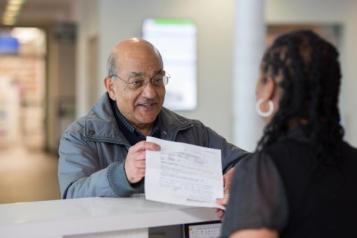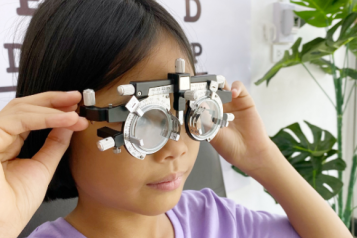Lost in translation – improving access to translation and interpreting services

Clear, understandable information is vital to help you make decisions about your health and care and get the most out of services.
Our latest research shows that people who speak little or no English struggle at all points of their healthcare journey. These are often some of the most vulnerable in our society, for example, refugees and asylum seekers.
They find it difficult to register with a GP, access urgent care, navigate large healthcare premises, explain their problems, or understand what the doctor says.
Lack of interpreting support further compounds their struggles. They may not know they can ask for professional interpreters, find it difficult to access one when needed, or even understand them if interpreters don't speak their dialect.
As a result, people who speak little or no English face significant barriers and delays in receiving care, putting them at a disadvantage and contributing to health inequalities.
Rights to accessible healthcare
The NHS Act 2006 puts a legal duty on healthcare services to reduce inequalities for patients who cannot speak English "in respect to their ability to access health services; and the outcomes achieved for them by the provision of health services."
In 2016, NHS England (NHSE) created the Accessible Information Standard (AIS), making it mandatory for all health and social care providers to provide information in accessible formats, such as in British Sign Language or easy read. NHSE is currently undertaking a review of the AIS and will publish a report in spring this year.
However, the standard doesn't apply to people who cannot speak English and plans to address the many challenges they face in accessing healthcare information and communication support are less clear.
Tell us your experience
Have you or your loved ones had problems accessing healthcare information because of a language barrier? Share you experiences.
So you can take part in our campaign Your Care, Your Way, we have created our survey in several alternative formats, including Easy Read and five additional languages.
Your Care, Your Way survey - Alternative fomats
What medical support are you entitled to if you’re new to the UK?
Healthwatch Bury Healthcare Access Assistant
A new weekly drop-in service to help you access local health services and health advice.
The session runs alongside Eagles Wing support group and offers help to people struggling to access health services or social care due to language barriers, online access or understanding of how to contact local services.
United Reform Church, Parsons Lane, Bury. BL9 0LY
Thursdays 10am - 12pm


